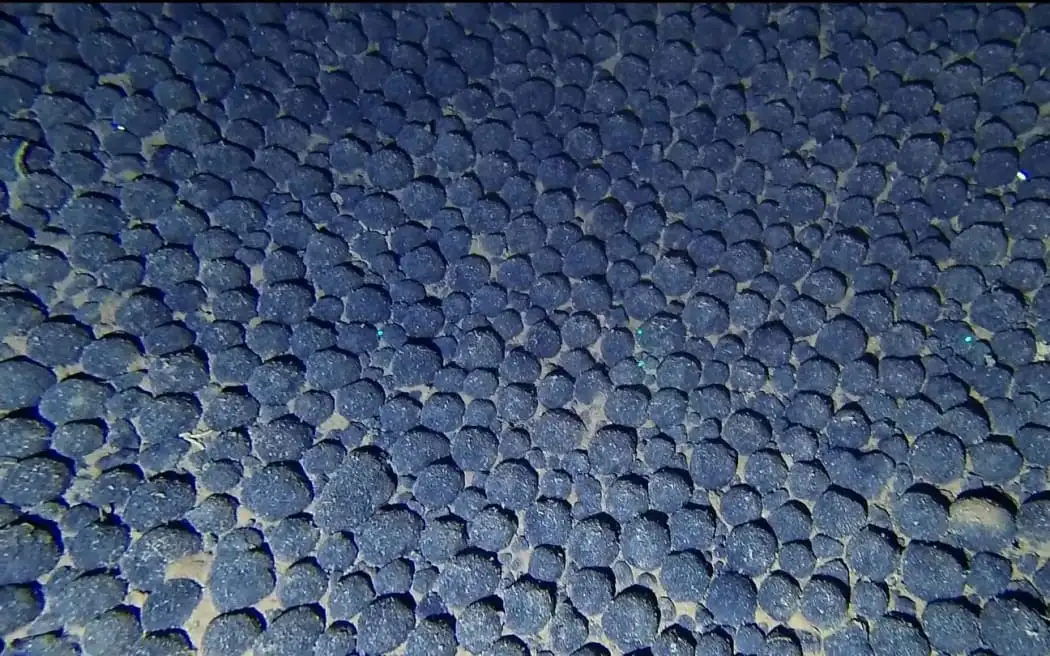Cook Islands Environmental Groups Call for Comprehensive Survey on Seabed Mining
Local environmental groups in the Cook Islands are urging the government to conduct a comprehensive survey to determine public support for seabed mining before further action is taken.
Concerns Over NGO Involvement and Misleading Consultation Methods
Marine biologist Dr Teina Rongo, chairperson of non-governmental organisation Korero o te Orau, called for balanced education and awareness campaigns to ensure all Cook Islanders, including those on the outer islands, are fully informed about the potential impacts of seabed mining.
Dr Rongo made this call after the issue of NGO involvement came to a head during a Facebook exchange between Korero o te Orau and the Cook Islands Seabed Minerals Authority (SBMA).
SBMA had included Korero o te Orau’s logo in a presentation slide during its consultation in New Zealand last month, implying the NGO’s involvement and support for seabed mining.
Protests Over Misleading Consultation Methods
In a statement on its Facebook page, Korero o te Orau criticised the presentation as misleading.
“Your heading is misleading as it states we are involved but doesn’t clarify how. It’s a misuse of our logos,” the NGO stated.
SBMA acknowledged Korero o te Orau’s comment and committed to removing logos from future presentations.
Opposition Leader Criticises Consultation Methods
Opposition leader Tina Browne earlier stated that the trip to New Zealand was a “promotion not consultation”.
Browne suggested that the SBMA did not include any opposition members or representatives from non-government organisations, “so that only one view was promoted at the meetings”.
Call for Balanced Education and Awareness Campaigns
Dr Rongo also criticised the lack of meaningful engagement with local NGOs, saying their roles in the Technical Advisory Group (TAG) for Marae Moana often feel tokenistic.
June Hosking, president of Te Ipukarea Society (TIS), another Rarotonga-based NGO, said the Government must rethink its consultation processes.
Concerns Over Economic Benefits and Environmental Impact
Hosking suggested that representatives from the four pillars of society – community, culture, economy, and environment – be included to provide a more balanced perspective.
She also challenged the notion that seabed mining is essential for the transition to clean energy.
“At the Blue Planet Alliance forum, they made it clear that DSM (deep-sea mining) is not necessary for renewable energy. If ecosystems are destroyed in the process, can we really call it clean energy?”
Government’s Emphasis on Economic Benefits and Misleading Framing
Jackie Rongo, secretary of Korero o te Orau, raised concerns about the Government’s emphasis on seabed mining’s economic benefits while downplaying its environmental and social impacts.
“The conversation focuses on profits and benefits, ignoring the harm. When community members ask if we can stop if it turns out to be bad for us, there are no clear answers,” Rongo said.
Conclusion
Environmental groups in the Cook Islands are urging the government to prioritise the interests of Cook Islanders and the country’s natural heritage over economic gains.
“This is about more than just the economy; it’s about protecting our environment and ensuring that decisions are made with the full knowledge and consent of our people,” TIS’s Hosking said.
-This article was first published by Cook Islands News.

0 Comments